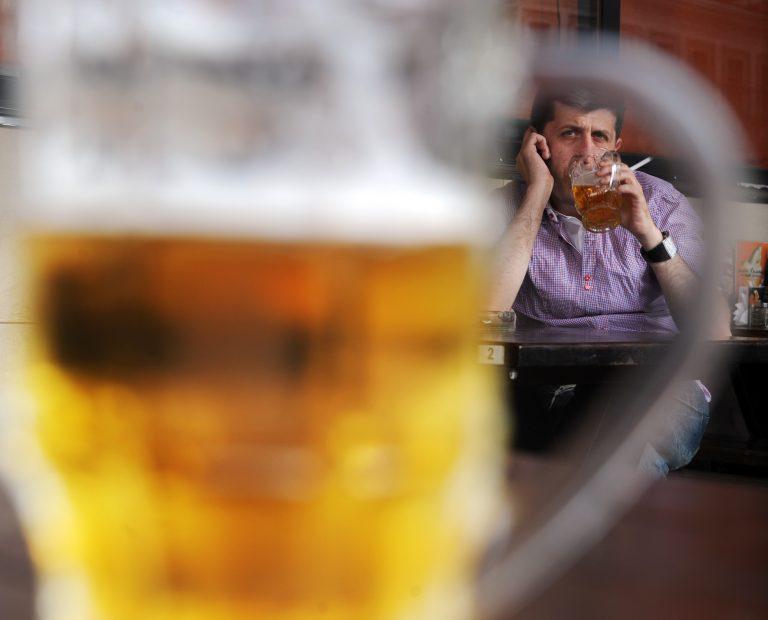Is cannabis more harmful than alcohol?
‘All the data we have right now suggests alcohol causes more harm than cannabis. That’s the hypothesis.’

(DMITRY KOSTYUKOV/AFP/Getty Images)
Share
“I get this question a lot,” says Dr. Amy Porath, the director of research at the Canadian Centre on Substance Use and Addiction (CCSA). “The reality is there are risks and harms with both substances, and I don’t think you can compare them. It’s like apples and oranges.”
Alcohol has been researched extensively for decades, whereas cannabis has not, so there’s more data available on booze than pot. Many variables contribute to the effects of either substance, including age, pre-existing mental health conditions, frequency and intensity of use. Based on available research, alcohol clearly poses harm at both individual and public health levels. The substance is linked to several types of cancers, cirrhosis, liver failure, and motor-vehicle accidents. In 2016, more people were hospitalized due to alcohol-caused issues than for heart attacks.
“There’s no such thing as ‘for sure’ when you ask a researcher, but all the data we have right now suggests alcohol causes more harm than cannabis,” says CCSA research and policy analyst Catherine Paradis. “That’s the hypothesis.” Key word: hypothesis.
CAMH chief of medicine in psychiatry Dr. Peter Selby says at a population level, alcohol is more harmful than cannabis is, but that opinion is informed by the research available. Selby, an addiction medicine specialist, reiterates that cannabis has different potencies and forms, and says it can lead to anxiety, paranoia and rapid heart rates, and people can experience poisoning from taking too much.
According to MADD, 974 fatalities on public roads that occurred in 2014 involved drugs alone, or drugs along with alcohol, making up about 42 per cent of all fatalities that year. Cannabis was the most prevalent drug in over 44 per cent of those crashes. Anyone drinking or using cannabis should avoid operating machinery or driving while under the influence, Selby says.
Sunnybrook Hospital’s Dr. Anthony Feinstein’s lab has conducted several studies showing cannabis use can worsen cognition in patients with multiple sclerosis. Feinstein agreed more research is needed before long-term impacts of cannabis are established, including negative and positive ones. CBD, a non-euphoric element of cannabis, has been studied for its therapeutic effects, which are yet to be accepted by the wider medical community.
Cannabis smoke does contain carcinogens, and cursory studies have linked the substance to lung and testicular cancers. But more clinical research is required, says Dr. Praveen Bhatti of B.C. Cancer. So the answer has a lot to do with what we know, and a lot to do with what we don’t.
“We’re hoping people understand just because something is legal, doesn’t make it safe,” says Selby. Just like alcohol, cigarettes, or driving a car.